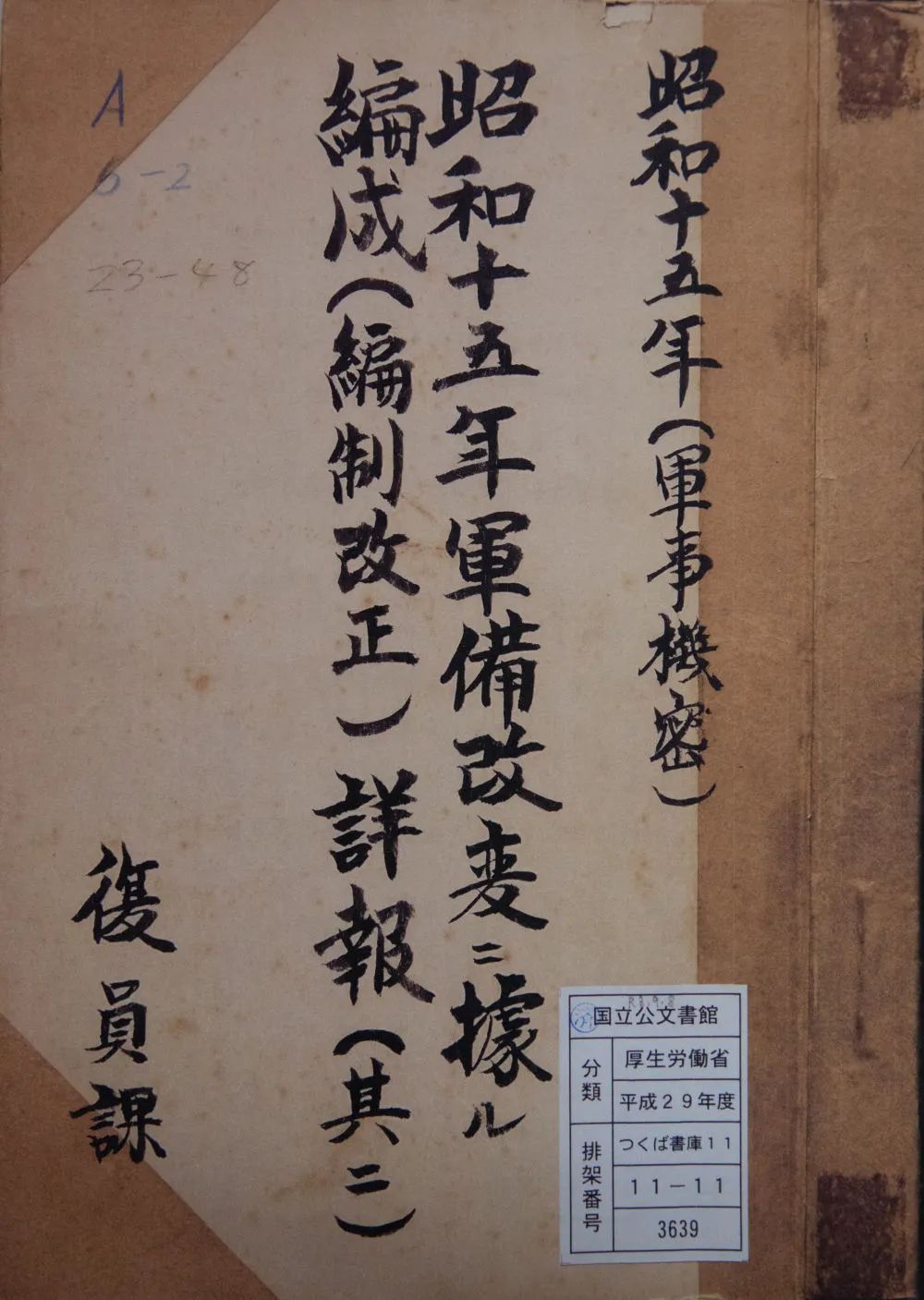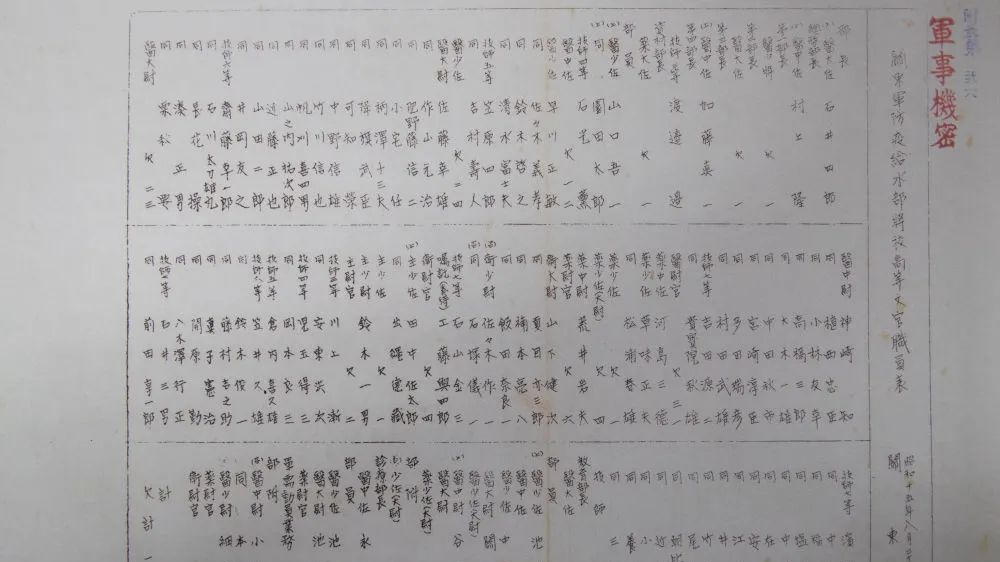
A piece of the archives Japanese historian Seiya Matsuno found at the National Archives of Japan. /Xinhua
A piece of the archives Japanese historian Seiya Matsuno found at the National Archives of Japan. /Xinhua
A Chinese museum and a Japanese historian jointly released archives showing the components and staff list of Unit 731 – a Japanese biological and chemical warfare unit during World War II – to the public in Harbin City, northeast China’s Heilongjiang Province, on Friday.
The archives were found by Japanese historian Seiya Matsuno in the National Archives of Japan recently. Matsuno, who is also a Distinguished Professor of Heilongjiang International University, took the photocopy of the staff list to China.
This is the first time that the information about the staff list and all the departments of Unit 731 has been confirmed from Japanese official archives, said Matsuno.
Matsuno said it’s very important to release the staff list in Harbin City, where Unit 731 was based, adding that he hopes to cooperate with Chinese experts to research the archives and let more people know Unit 731’s crimes.

A piece of the archives Japanese historian Seiya Matsuno found at the National Archives of Japan. /Xinhua
A piece of the archives Japanese historian Seiya Matsuno found at the National Archives of Japan. /Xinhua
Jin Chengmin, curator of the Museum of Evidence of War Crimes by the Japanese Army Unit 731 in Harbin, noted the staff list showed that medical scientists and engineers were major forces of the unit in 1940.
“This is an extremely important archival data for the study of chemical and bacterial warfare launched by Japan during World War II, and it’s also hard evidence of crimes committed by the Japanese Kwantung Army during its aggression in China,” Jin said.
At least 3,000 people were used for human experiments by Unit 731, and more than 300,000 people in China were killed by Japan’s biological weapons.
The new archives will be on display at the Museum of Evidence of War Crimes by the Japanese Army Unit 731 and Heilongjiang International University in the near future, Jin said, adding that the museum will cooperate with Japanese experts to do further research about the archives.
(With input from Xinhua)